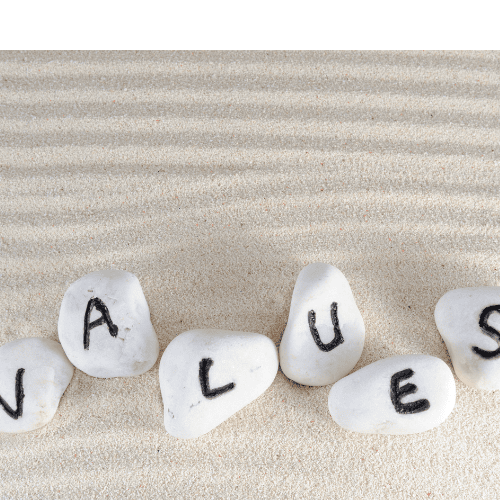Authenticity and authentic behaviour are increasingly heard and used terms to describe the type of people we aspire to be in today’s ever more fraught, complex and ambiguous landscapes.
Like many other phrases, authenticity or authentic leadership has expanded in meaning to embrace several related concepts and ideas. According to Howell and Avolio (1992) we should only consider as authentic those individuals who are concerned for the common good.
Bass and Steidlmeier (1999) suggest that the personal virtue and moral wisdom of authentic individuals is what helps them avoid the pitfalls associated with power accumulation and self-aggrandisement. Hartner and others (2002) require thoughts and feelings to be consistent with actions if the leader is to be considered authentic, and that one acts in accordance with one’s true self. This presupposes that one’s true self is aligned with a worthy set of values, an issue avoided in the definition offered by Michie and Gooty (2005) that the authentic leader is driven by high-end, other-regarding values. Luthans and Avolio (2003) require authentic leaders to be transparent about their intentions and maintain a seamless link between espoused values, behaviours and actions. For them, authentic leaders need the moral capacity to make selfless judgements.
What is consistent across the academic literature is both that the bar for authentic leadership is set high and that the majority of us are not reaching that bar. The evidence is all around us in depressing detail. If we are to assert ourselves, if we are to make a conscious effort to become better individuals, we have a personal responsibility to explore the challenges of behaving with authenticity and the difficulties and pitfalls of behaving without it.
What, for example, prevents us from being concerned for the common good? Our prevailing valuing of the concept of seeking to provide for our family, perhaps? Or our ambitious need to better and to advance ourselves? Or the sheer pressure that is exerted on our time? It may be that we do not lack concern, but we lack the time or opportunity to express it, or we do not value the concern enough to invest time in it. Which suggests that our personal virtue or moral wisdom may not be up to the task of being authentic. For these are surely flimsy excuses?
Our authenticity challenge may be the one Hartner isolates: marrying our thoughts and feelings with our actions. This is a challenge of emotional intelligence. I may be self-aware, and my thoughts and feelings may reflect an authentic persona; however, my lack is an ability to self-manage and to live my life in a way that reflects that inner individual. How I behave may not mirror how I feel. There are many reasons why this may be the case – but one result is an inability to lay claim to authenticity. Too few of us act in accordance with our true selves. Nor do we allow ourselves to be driven by high-end, other-regarding values as often as we should. We allow the tyranny of the urgent to overwhelm what is actually important in our lives. The necessary seamless link between espoused values, behaviours and actions is in practice more a strained thread. We lack selflessness and the skill to develop it.
There is, therefore, an important requirement to decide whether our own sense of authenticity needs deeper examination and to explore tools and techniques which might help us so to do. We should reflect on what may be lacking in ourselves to prevent ready access to enough authenticity to resist the day-to-day temptations of the workplace or indeed the world at large.
We should examine what we as individuals can do to help ourselves provide better defences against those temptations – such as the pursuit of personal power, wealth, gratification or other reward – which undermine authenticity and we might conclude that authenticity, challenging as it is, is a better alternative than the current popular model of broad self-interestedness.
That sounds daunting – and alone, without support, it is. However, the Indigo Sails philosophy is that you’re not alone. We are there for you – trained life coaches, psychometricians, story tellers, facilitators, teachers, scholars, ready, willing and eager to help you on your unique and individual journey.
Find out more about us, our workshops, retreats and sailing experiences, and discover how we can help at www.indigosails.co.uk
References:
- B. M. Bass and P. Steidlmeier: (1999) Ethics, character and authentic transformational leadership behaviour, The Leadership Quarterly 10, 1999
- J. M. Howell and B. J. Avolio: (1992) The ethics of charismatic leadership: Submission or liberation? Academy of Management Executive 6 (2), 43-54 1992
- S. Michie and J. Gooty: (2005) Values, emotions and authenticity: will the real leader please stand up? The Leadership Quarterly 16, 2005; 441-457
Roger Delves MA (Hons) Oxon, FRSA
Professor of Practice in Leadership












